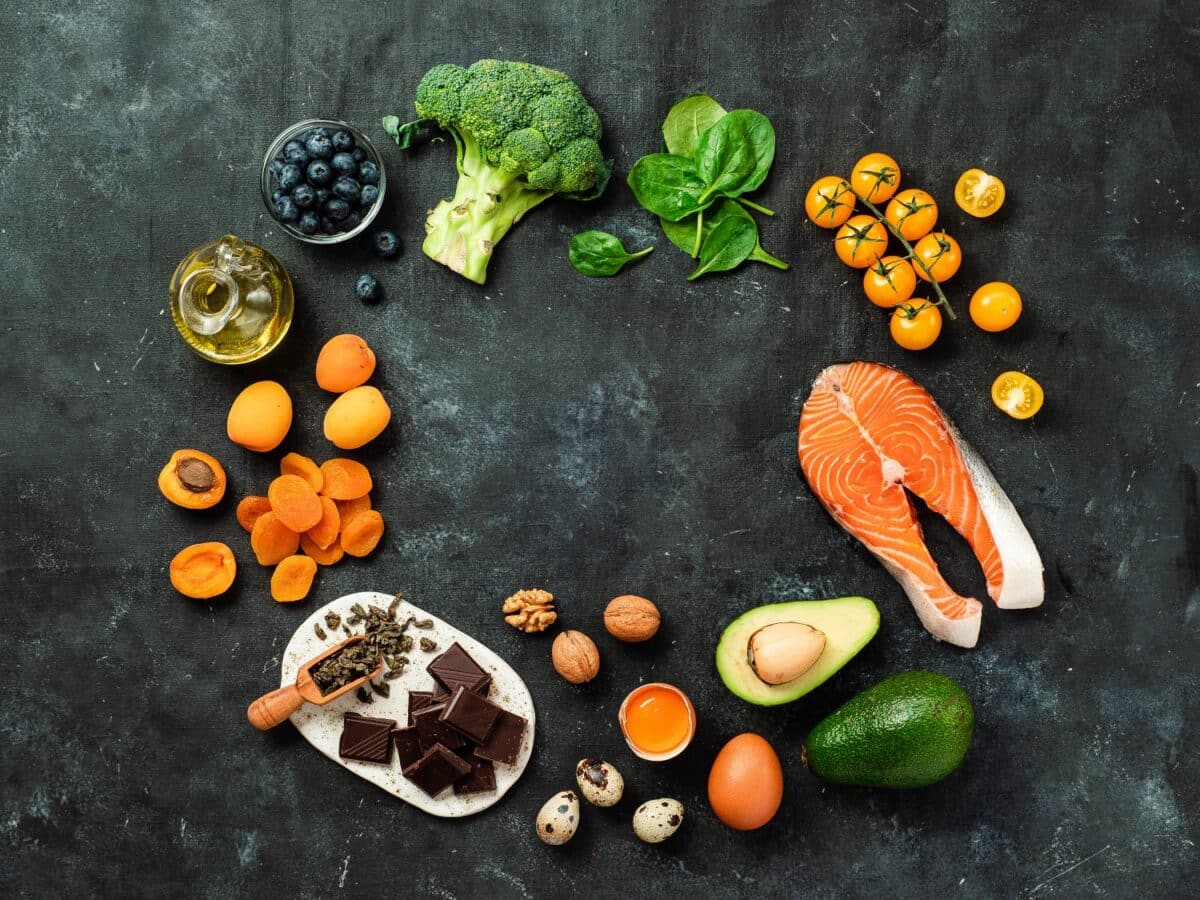An article by Renee W.
I admit that I am no nutrition expert, but I have seen first-hand how nutrition has positively impacted my own recovery.
Deep in alcohol addiction, I would not eat much. My diet consisted of alcohol, alcohol, and more alcohol. I was sick all the time, and it’s no wonder why.
I would go to the doctor to complain about the symptoms this brought on, like GI issues, neglecting to disclose that I was an alcoholic. The doctor would prescribe medications, but of course, they never worked.
I was severely nutritionally malnourished, and I didn’t even realise this at the time.
When I went to a treatment centre, meals were served three times a day, and snacks were always available. I remember feeling overwhelmed with all the food I was supposed to be eating, and while it took time to adjust to eating again, I was able to use nutrition as part of my healing journey toward long-term sobriety.
There’s a reason why they say “food is medicine”.
You see, recovering from addiction requires holistic healing of body, mind, and soul. Most recovery centres focus on psychology therapies and support groups, which are large parts of healing from addiction. However, in recent years, the powerful role of nutrition in addiction recovery has gained more attention, and for good reasons.
The connection between nutrition and recovery isn’t all about a balanced diet. It’s also about using food to heal the body from the damage caused by substance abuse. When this connection is fully recognised, it will become more apparent how truly powerful nutrition can be in addiction recovery.
When I realised this, I used nutrition to my advantage and truly started seeing food as medicine.
The connection between substance abuse and nutrition
Addiction takes its toll on the body, and we may not even realise the severity of the damage. Substance abuse often harms the body in two ways:
- The substance’s negative effects on the body
- The way the substance influences irregular eating and poor diet
These two problems work together to produce detrimental problems in the body. This is certainly backed by research, which highlights the harmful effects of substance abuse on nutrition. For example, this study emphasises how alcohol and drug abuse can result in deficiency in crucial nutrients like vitamins B and C, magnesium and zinc.
Additionally, it’s important to note that addictive substances can alter brain chemistry, affecting neurotransmitters involved in mood regulation and reward pathways. This disruption, combined with poor nutrition, is commonly seen in those struggling with addiction.
The cycle of addiction typically involves irregular eating patterns. Drug and alcohol abuse is known to suppress appetite, so those suffering often don’t get enough calories and nutrients.
This destructive cycle not only perpetuates nutritional deficiencies but also exacerbates mental health issues, creating a challenge for recovery. The goal for healing is recognising and addressing nutritional imbalances to support holistic recovery.
Healing the body through nutrition

Sometimes, all the nutrition lingo can be confusing, especially if you’re early in recovery and trying to figure it all out. Just know that you can indeed help support your physical and mental healing through eating balanced, nutritious meals.
Adopting a balanced and nutrient-dense diet restores physical and mental health during recovery. Essential nutrients help to:
- Replenish nutrient deficiencies
- Repair organ function
- Balance blood sugar levels
- Manage cravings and mood
- Support gut health
The human body needs 13 different essential vitamins to stay healthy. These 13 vitamins work together to support the immune system and aid the brain and nervous system.
The body also needs minerals such as calcium, magnesium, and potassium. These minerals allow the body to stay hydrated and also contribute to a healthy immune system.
The body needs adequate protein, known as the building blocks of the body. Protein is found in every cell of the body and is necessary for optimal functioning.
Healthy fats are also essential in vitamin and mineral absorption, brain function, and blood sugar regulation.
As you can see, there are many moving parts to nutrition as healing. The goal is to incorporate whole foods rich in vitamins, minerals, proteins, and healthy fats that are fundamental in supporting the body’s healing process.
Replenishing nutrient deficiencies

Certain nutrients, like B vitamins, magnesium, and omega-3 fatty acids, are commonly depleted in those struggling with addiction. While repairing these deficiencies won’t happen overnight, foods such as leafy greens, lean meats, fish, nuts, and seeds can help replenish them.
Repairing organ function
The liver, a vital organ in detoxification, typically bears the weight of substance abuse. To detox from substances, the liver needs foods like cruciferous vegetables and berries. These whole foods possess antioxidants and anti-inflammatory properties that support liver health and help speed up the recovery process.
Balancing blood sugar levels
Erratic eating patterns and consuming addictive substances can cause unstable blood sugar levels. Blood sugar imbalances are prevalent in individuals struggling with substance abuse.
Your blood sugar directly impacts your cravings and moods during recovery. Whole-grains, legumes, and low-glycemic fruits and vegetables can help with a steady release of energy. Also be sure to eat at regular times throughout the day and eat small healthy snacks between meals.
Managing cravings and mood
Cravings and mood swings are common, especially in early recovery. Balanced meals with adequate protein, complex carbohydrates, and healthy fats can stabilise blood sugar levels, reducing cravings and improving mood. Foods like quinoa, beans, lean proteins, and avocados also help maintain blood sugar and support emotional health.
Supporting gut health
Substance abuse can disrupt gut flora, impacting digestion and nutrient absorption. Fermented foods like yoghurt, kimchi, and sauerkraut, along with high-fibre foods like fruit and vegetables, help in restoring gut health and improving digestion.
The impact of nutrition on mental health
Beyond its physical benefits, nutrition plays a significant role in mental health, too. When you feel better physically, you often feel better mentally. The gut-brain connection emphasises how what we eat directly influences how we feel mentally.
Nutrient-rich foods contribute to better mental health. Here are some ways that this works:
Boosting mental clarity and focus
For those navigating the mental challenges of recovery, clarity and focus are vital. Omega-3 fatty acids found in fish, flaxseeds, and walnuts support brain health, aiding in cognitive function and clarity. Additionally, antioxidants in fruits and vegetables promote sharper mental focus.
Supporting emotional stability
Incorporating foods that boost serotonin levels is another way to support emotional stability. Foods that boost serotonin include turkey, bananas, and dark chocolate. Research shows that these foods can actually regulate mood and reduce anxiety.
Consuming probiotic-rich foods also positively impacts mood by fostering a healthy gut.
How to implement nutrition in a recovery program

Integrating nutrition into addiction recovery programs is crucial for fostering physical, mental, and emotional healing. Here are some practical ways that incorporate nutrition as a cornerstone of recovery:
Nutritional education and counselling
Knowledge is power when it comes to nutrition. Educating clients about the impact of nutrition on recovery and providing nutritional counselling can empower them to make healthier dietary choices. Recovery centres can hold educational sessions and workshops to educate clients on the impact of specific nutrients in addiction recovery.
Meal planning and support
Even when you know you should be eating more vegetables and protein, what this looks like in action can be overwhelming. This is where offering guidance on meal planning and access to nutritious foods will create a supportive environment that encourages healthy eating habits. This could include organising cooking classes or group meal preparation sessions will be helpful.
Collaborating with nutrition professionals
Foster collaboration with nutrition professionals who specialise in addiction recovery. Collaboration with registered dieticians or nutritionists helps tailor dietary plans that address individual needs and deficiencies, enhancing the effectiveness of recovery programs. Their expertise can be invaluable.
What’s the bottom line?
I am grateful that I now understand how what I eat determines how I feel and how I function in my everyday life. My diet is far from perfect, but I do focus on protein (lean meats) and vegetables the majority of the time to feel my best in recovery. I keep sweets to a minimum to help balance my blood sugar, and the knowledge I have today is instrumental in feeling my best as I live my recovery out one day at a time.
Thankfully, nutrition, a potent tool for recovery, is gaining the recognition it deserves. By acknowledging the profound impact of nutrition and integrating it into recovery strategies, individuals can begin a path of healing that includes not only sobriety but overall health and well-being.
As the understanding of this connection deepens, the integration of nutrition into addiction recovery programs will continue to evolve.
How can White River Manor help?
We believe that nutrition is an essential part of healing and recovery, which is why our professional chef prepares a variety of fresh, balanced meals each day. Upon arrival at White River Manor, clients are evaluated, and personalised treatment plans are created, which include a nutrition component.
We understand that recovery is a lifelong process, which is why we have our own holistic treatment program, developed around personal preferences and specific needs. Our personalised, holistic approach ensures transformative healing and sustainable recovery.
To find out more about our treatment program for addiction, please contact us for a confidential, no-obligation conversation.
We are here and ready to help.






